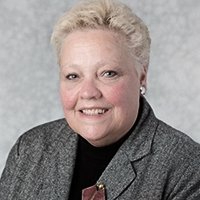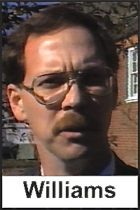Rascals case in brief
In the beginning, in 1989, more than 90 children at the Little Rascals Day Care Center in Edenton, North Carolina, accused a total of 20 adults with 429 instances of sexual abuse over a three-year period. It may have all begun with one parent’s complaint about punishment given her child.
Among the alleged perpetrators: the sheriff and mayor. But prosecutors would charge only Robin Byrum, Darlene Harris, Elizabeth “Betsy” Kelly, Robert “Bob” Kelly, Willard Scott Privott, Shelley Stone and Dawn Wilson – the Edenton 7.
Along with sodomy and beatings, allegations included a baby killed with a handgun, a child being hung upside down from a tree and being set on fire and countless other fantastic incidents involving spaceships, hot air balloons, pirate ships and trained sharks.
By the time prosecutors dropped the last charges in 1997, Little Rascals had become North Carolina’s longest and most costly criminal trial. Prosecutors kept defendants jailed in hopes at least one would turn against their supposed co-conspirators. Remarkably, none did. Another shameful record: Five defendants had to wait longer to face their accusers in court than anyone else in North Carolina history.
Between 1991 and 1997, Ofra Bikel produced three extraordinary episodes on the Little Rascals case for the PBS series “Frontline.” Although “Innocence Lost” did not deter prosecutors, it exposed their tactics and fostered nationwide skepticism and dismay.
With each passing year, the absurdity of the Little Rascals charges has become more obvious. But no admission of error has ever come from prosecutors, police, interviewers or parents. This site is devoted to the issues raised by this case.
On Facebook
Click for earlier Facebook posts archived on this site
Click to go to
Today’s random selection from the Little Rascals Day Care archives….
Click for earlier Facebook posts archived on this site
Click to go to
Today’s random selection from the Little Rascals Day Care archives….
Defective interviews? Irrelevant, DA insisted
July 23, 2012
“ ‘Don’t focus on the question, focus on the answer,’ (District Attorney H. P. Williams Jr.) said, referring to the defense argument that children were asked leading questions.”
– The Associated Press, March 28, 1992
Did prosecutors know all along that the interview process was corrupt at the core and that their case was in essence (if not in the strict legal sense) fruit of a poisonous tree?
Or had they, too, simply lost their bearings in the hysteria?
Expert on day-care panic adds papers to Duke Law archive

DeYoung
Jan. 11, 2019
The Little Rascals Day Care Case archive at Duke Law School is about to get some impressive company. Mary deYoung, perhaps the most prolific researcher and chronicler of the “satanic ritual abuse” era, has agreed to place her own voluminous papers at Duke.
The author of both “The Day Care Ritual Abuse Moral Panic” (2004) and “The Ritual Abuse Controversy: An Annotated Bibliography” (2002), she is now emerita professor of sociology at Grand Valley State University. I asked Dr. deYoung to describe what she will be sending Duke’s way….
“My papers include 40 binders on American, European and Australasian cases. For many of the cases, I traveled to the site of the moral panic and collected local material that is not generally available by internet searches. I also have a file box of ephemera – symptom lists, descriptions of rituals, etc. – that were widely circulated at the endless training sessions that recruited so many social workers, police officers, medical and legal professionals to the idea that day care providers were engaged in a satanic conspiracy to abuse children. I have a few books, written by apologists, that probably should have been burned long ago, but they are testimony to the mainstreaming of these ridiculous ideas….
“The prospect that lessons can be learned from this dark decade is very satisfying…. While day care centers are no longer the site of the panic, the ridiculous assertions, unfounded complaints and pseudoscience that resulted in so many miscarriages of justice still occur in recovered memory and other types of cases around the Western world.”
![]()
Disapproval of prosecutors ‘about to hit a tipping point’

facebook.com
Juleyka Lantigua-Williams
May 31, 2016
“A consensus is building around the need to seriously rethink the role of the prosecutor in the administration of justice. Power dynamics are unbalanced, sentencing guidelines are outdated, and old-fashioned human biases persist. And prosecutors – singularly independent agents in a justice system roiling in turmoil – have been facing growing criticism and public distrust for some time, and that disapproval is about to hit a tipping point.
“It’s time to curtail the power long held by these officers of the court as they promote justice, ensure fairness, and enhance public safety.”
– From “Are Prosecutors the Key to Justice Reform?” by Juleyka Lantigua-Williams in the Atlantic (May 18)
Is the North Carolina Bar ready to take the first step toward holding prosecutors accountable?
![]()
‘If he made such a statement, it was not a threat’ (!)
 Aug. 3, 2012
Aug. 3, 2012
“Betty Ann Phillips, who had worked at the day care center, said (in the first episode of “Innocence Lost’) that she had complained to (District Attorney H.P.) Williams when she found out that indictments had been filed in her child’s name.
“She said Williams had advised her ‘not to go out on the street and say you’re unhappy with what we have done.’
“‘And then in the next sentence he said, “Because you know that all of the children are saying that you were the lookout while this was going on.”’
“In a telephone interview, Williams did not dispute that he had told Mrs. Phillips he had evidence from other children that she had acted as a lookout, but… if he made such a statement to her it was not meant as a threat.”
– The Associated Press, May 9, 1991











0 CommentsComment on Facebook